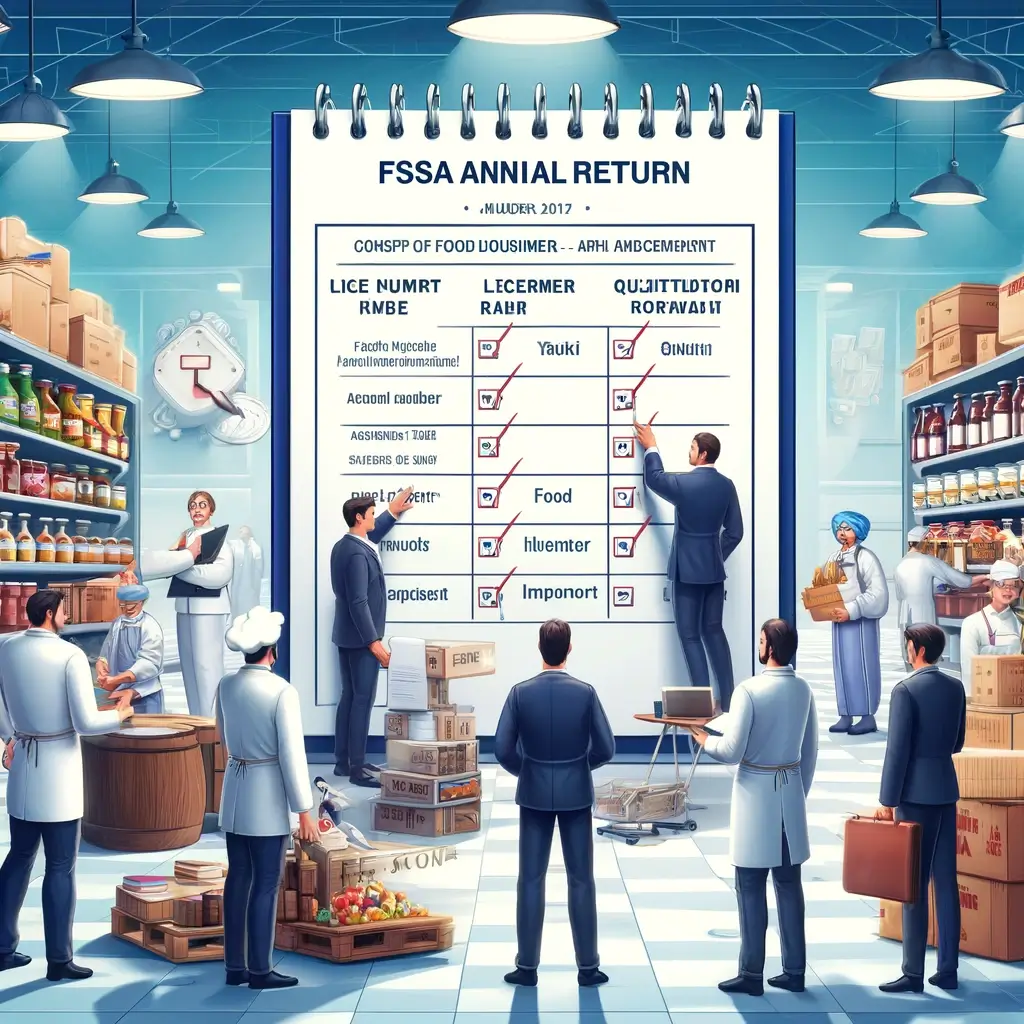
FSSAI Annual Return: A Guide for Food Business Operators
In India, food safety and quality are regulated by the Food Safety and Standards Authority of India (FSSAI). For food business operators (FBOs), compliance with FSSAI regulations is crucial for maintaining consumer trust, legal protection, and a competitive edge in the market. Among the key compliance requirements is the filing of FSSAI annual returns. This article provides an overview of FSSAI annual returns, including their importance, the types of returns, due dates, and penalties for late filing.
The Importance of FSSAI Annual Returns
Filing annual returns with the FSSAI is a critical aspect of compliance for food business operators. Here are some benefits of adhering to FSSAI annual return requirements:
Enhanced Reputation: Complying with FSSAI annual returns enhances the reputation of food businesses, demonstrating their commitment to food safety and quality.
Increased Brand Value: Companies that maintain FSSAI compliance tend to gain higher trust and recognition among consumers.
Government Support: Adhering to FSSAI requirements can lead to additional government support and assistance.
Consumer Trust: Compliance with FSSAI annual returns boosts consumer confidence in the safety and quality of food products.
Legal Protection: Filing FSSAI annual returns helps businesses avoid legal issues and penalties related to non-compliance.
Competitive Advantage: FSSAI-compliant businesses stand out in the market, attracting more customers and partnerships.
Types of FSSAI Annual Returns
There are two main types of FSSAI annual returns that food business operators must file:
1. Form D1: This form is required for various entities in the food industry, such as manufacturers, importers, labellers, packers, and re-packers. It covers details about the quantities of food items involved in various activities, such as manufacturing, exporting, and handling.
2. Form D2: This form is a half-yearly return required for food business operators involved in the manufacturing or importation of milk and/or milk products. It includes information related to the purchase, manufacturing, and distribution of milk products.
Due Dates for FSSAI Annual Returns
Form D1: This form must be filed by May 31st of each year for food manufacturers, importers, and other relevant entities.
Form D2: Form D2 must be filed twice a year. For the period from April 1st to September 30th, the return is due by October 31st. For the period from October 1st to March 31st, the return is due by April 30th.
Who Needs to File FSSAI Annual Returns?
The following entities are required to file FSSAI annual returns:
Food business operators involved in the sale, import, manufacturing, storage, handling, export, distribution, or transportation of food products.
Food business operators with a business turnover exceeding Rs. 12 lakhs.
Food business operators engaged in the distribution and manufacturing of milk products.
Exemptions from Filing FSSAI Annual Returns
Certain entities are exempt from filing FSSAI annual returns, including:
Canteens within institutions like schools, colleges, offices, and hospitals.
Restaurants and fast-food joints.
Grocery stores selling packaged food products.
Penalties for Late Filing
According to the FSS (Licensing and Registration) Regulations, 2011, failure to file FSSAI annual returns within the required period results in a fine of Rs. 100 per day until the default is rectified.
Final Thoughts
Filing FSSAI annual returns is essential for food business operators to operate legally and uphold food safety standards. By staying compliant with FSSAI regulations, businesses can maintain their reputation, enhance brand value, and receive government support. For accurate and timely filing of FSSAI annual returns, food businesses can seek the assistance of experts if needed.
By prioritizing compliance with FSSAI annual returns, food businesses can ensure the long-term sustainability and success of their operations while protecting the health and safety of consumers.
Q.Who needs to file an FSSAI annual return?
Q.What is the deadline for filing FSSAI annual returns?
Q.What are the penalties for late filing of FSSAI annual returns?
Q.What forms are used for filing FSSAI annual returns?
Q.How can I file an FSSAI annual return?